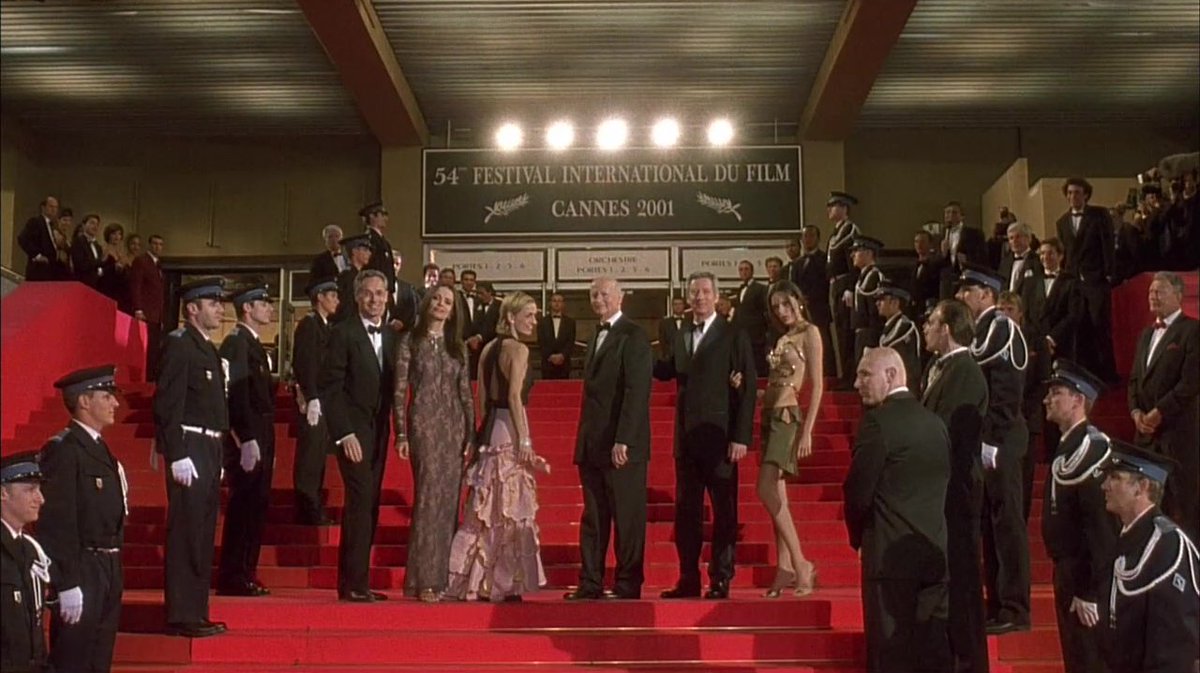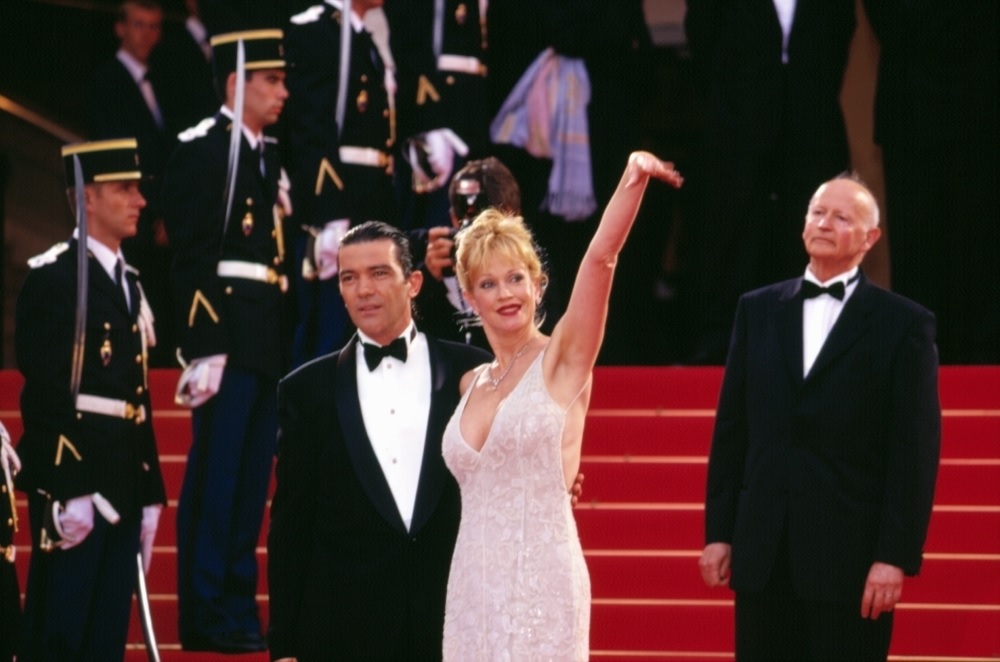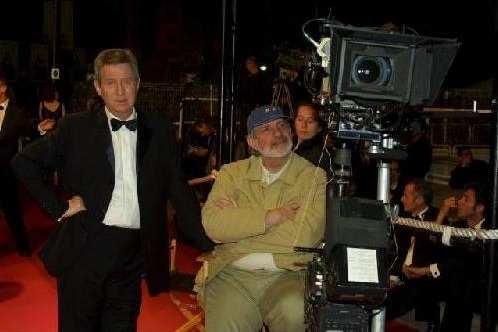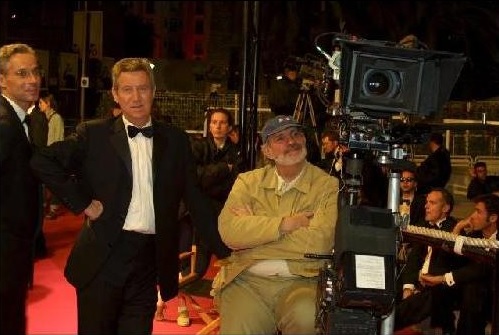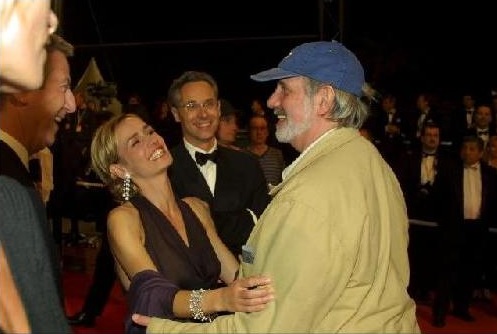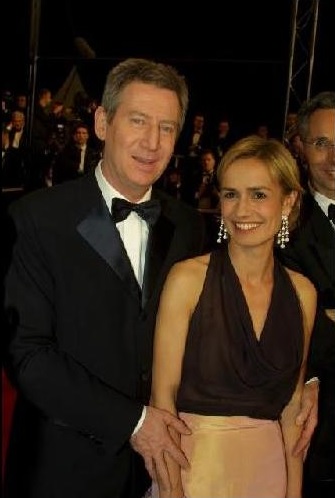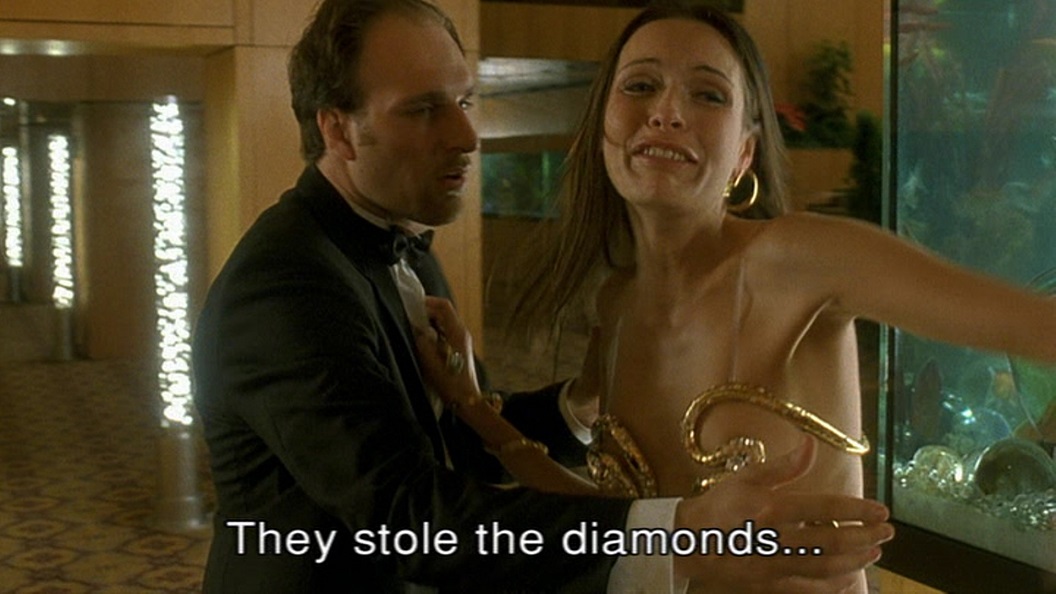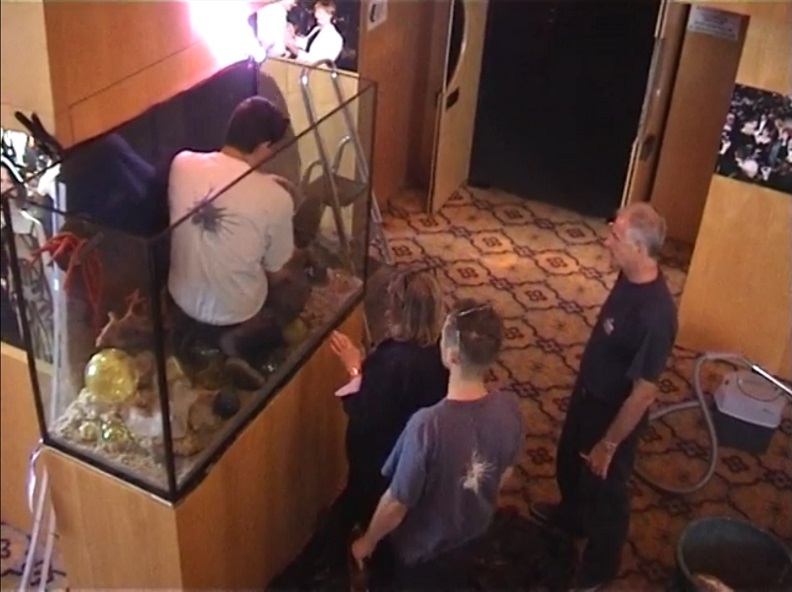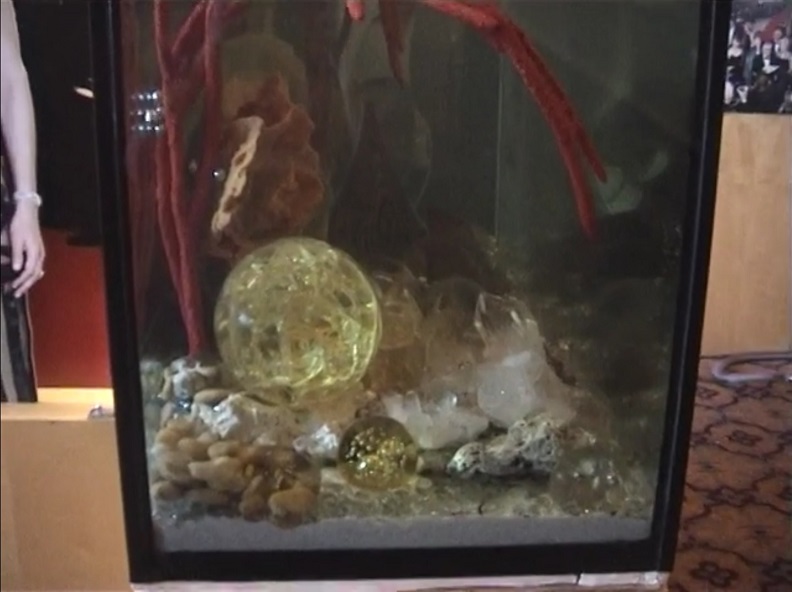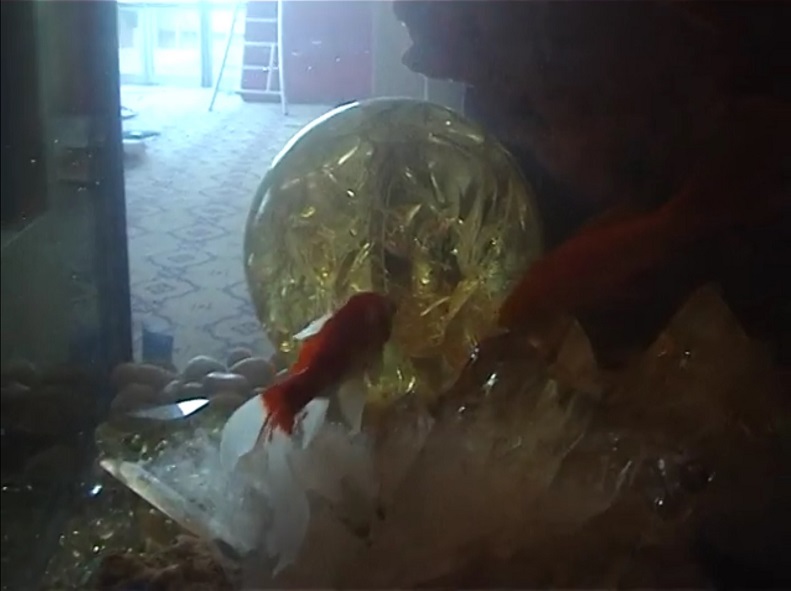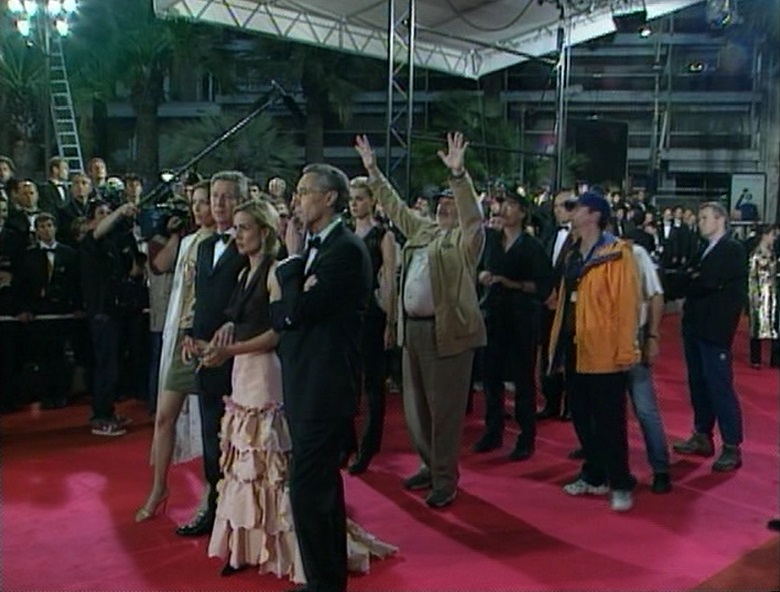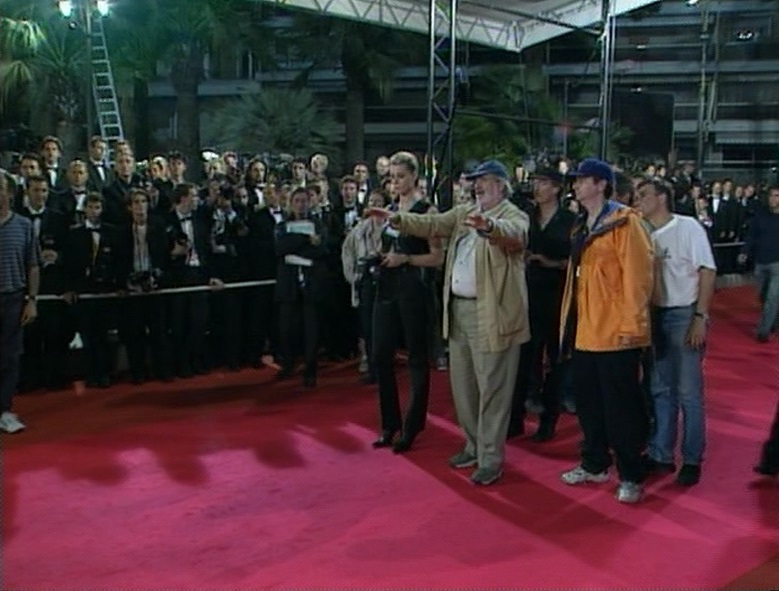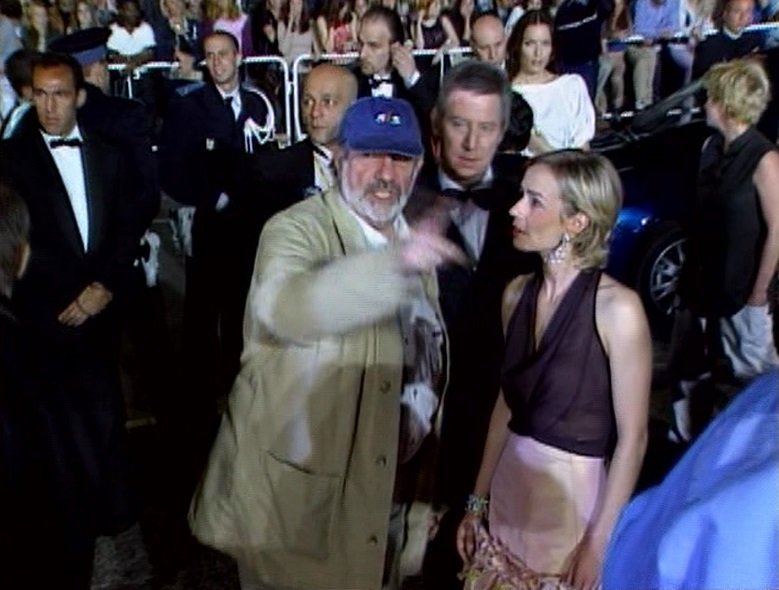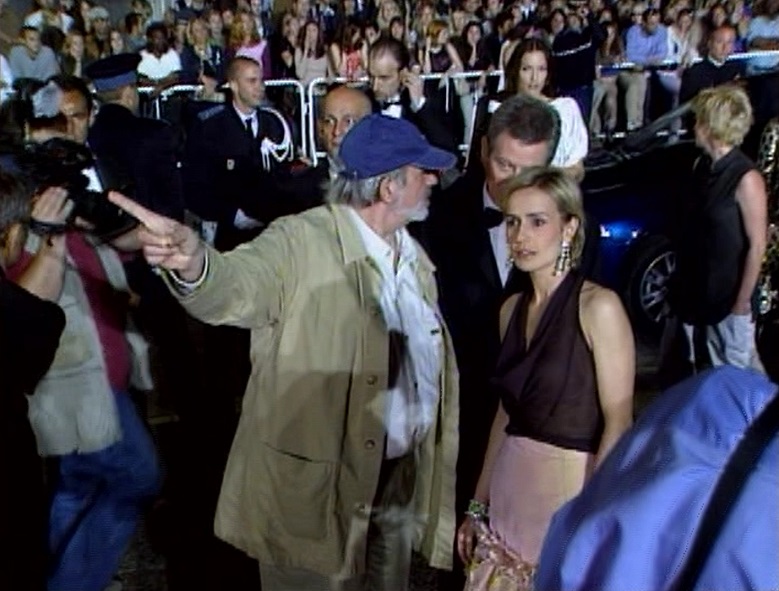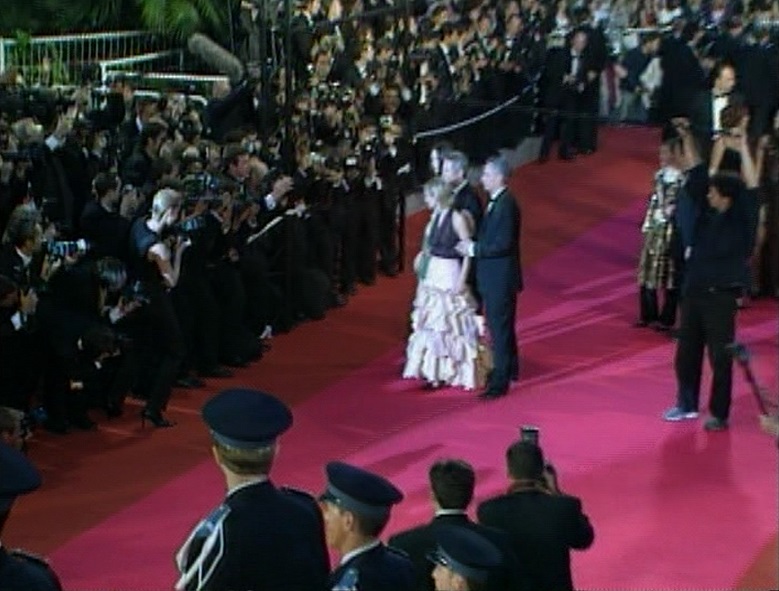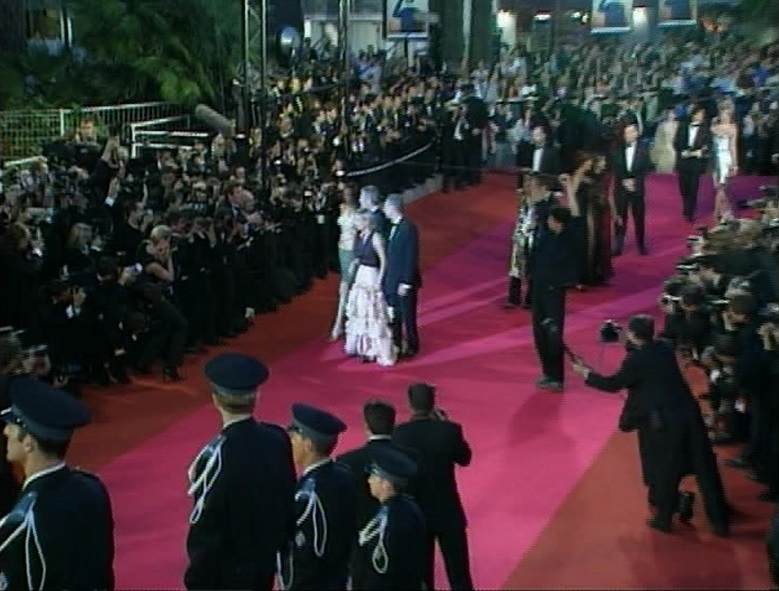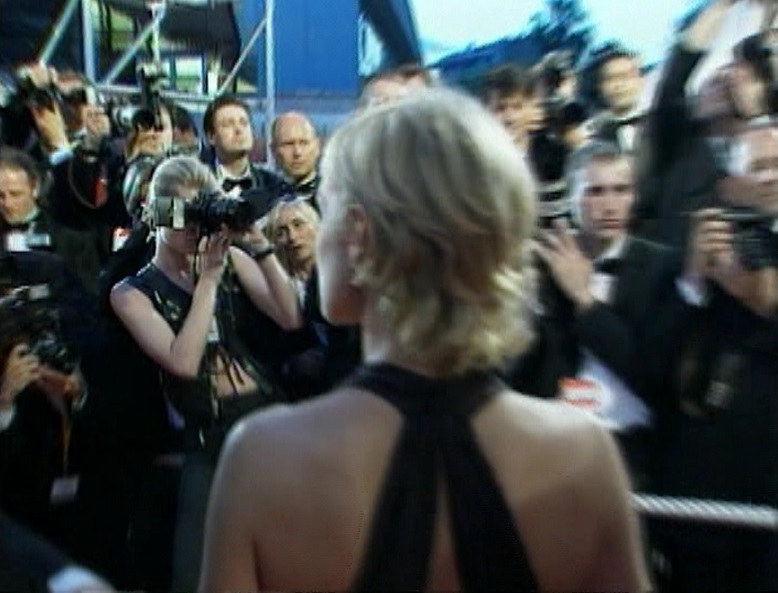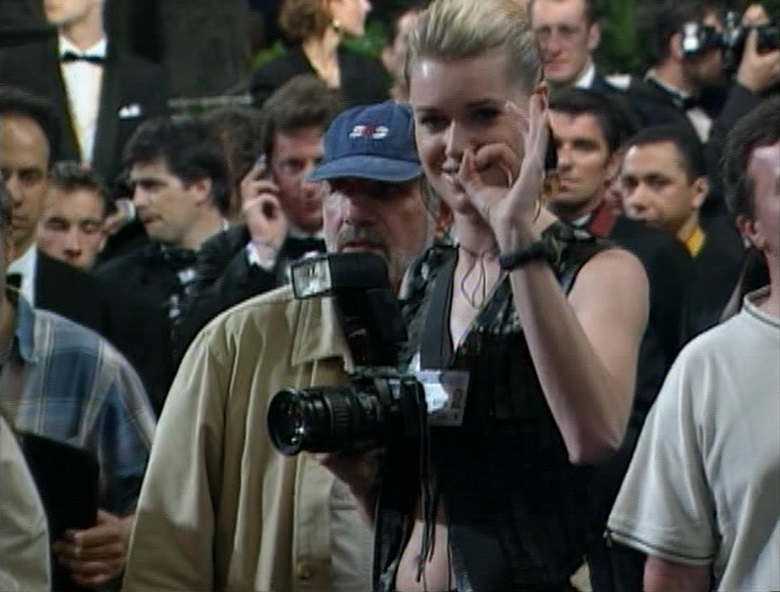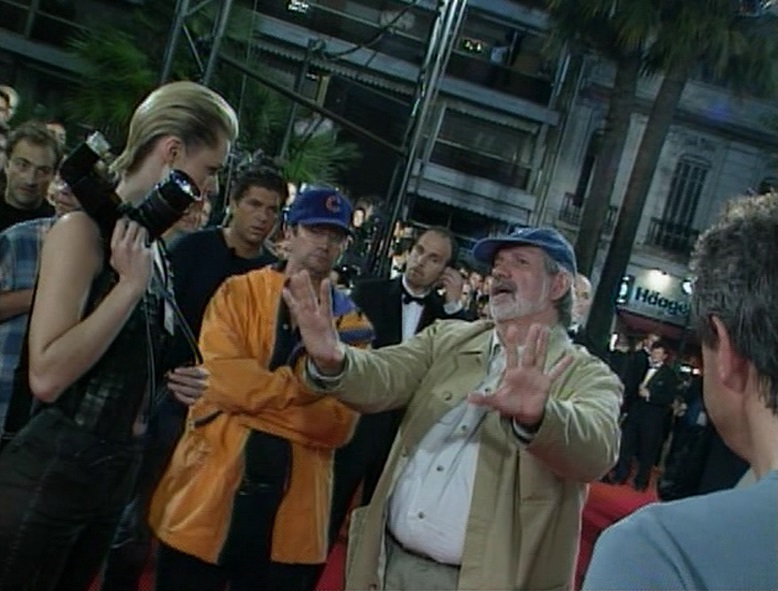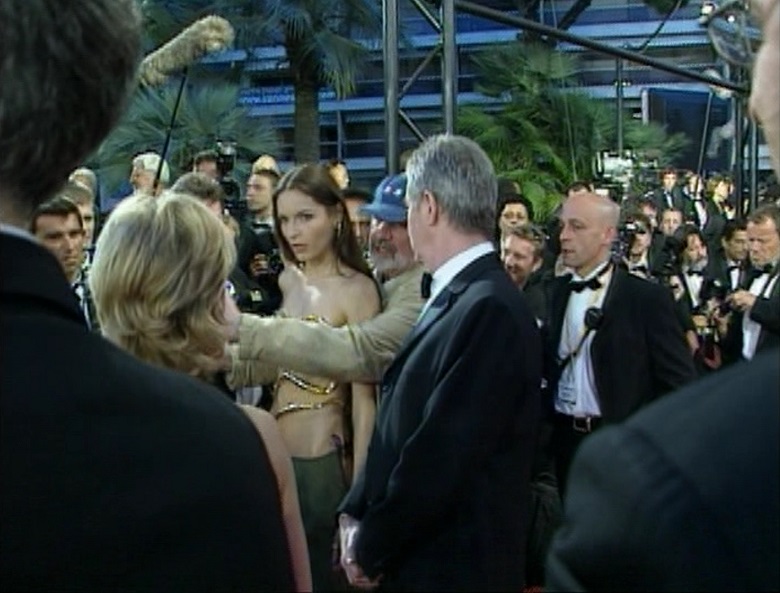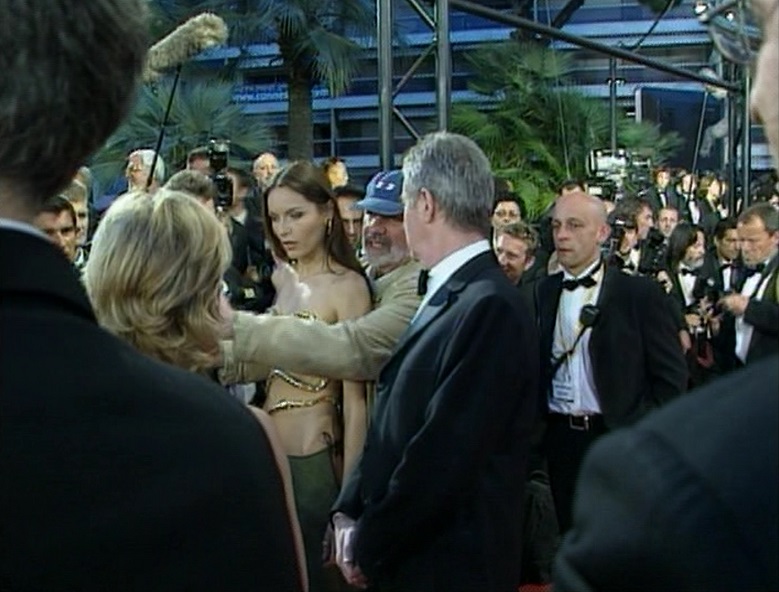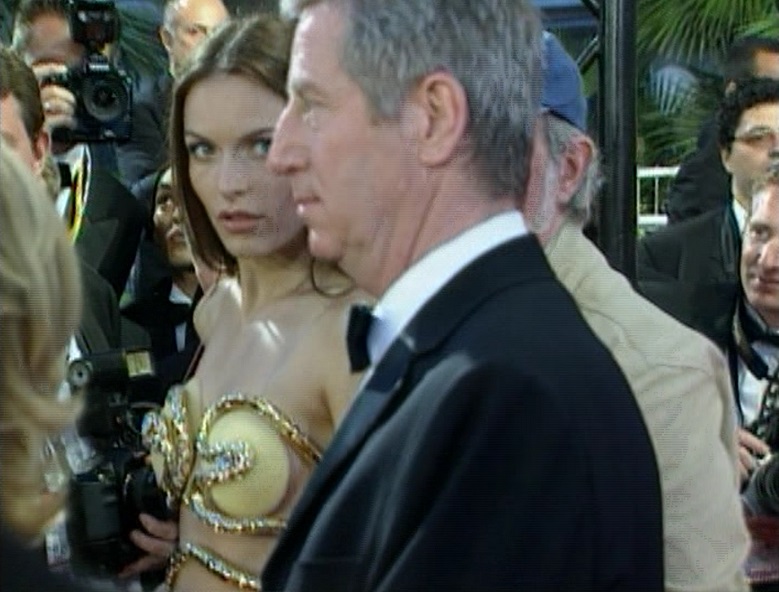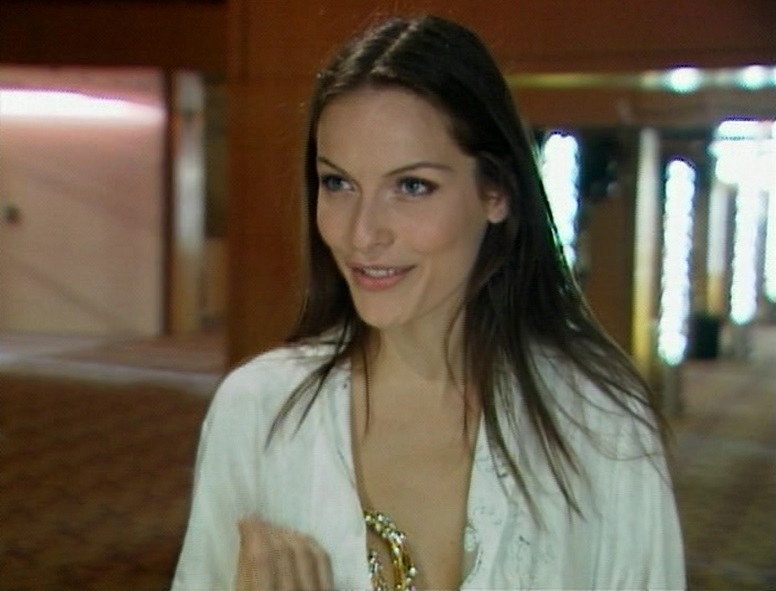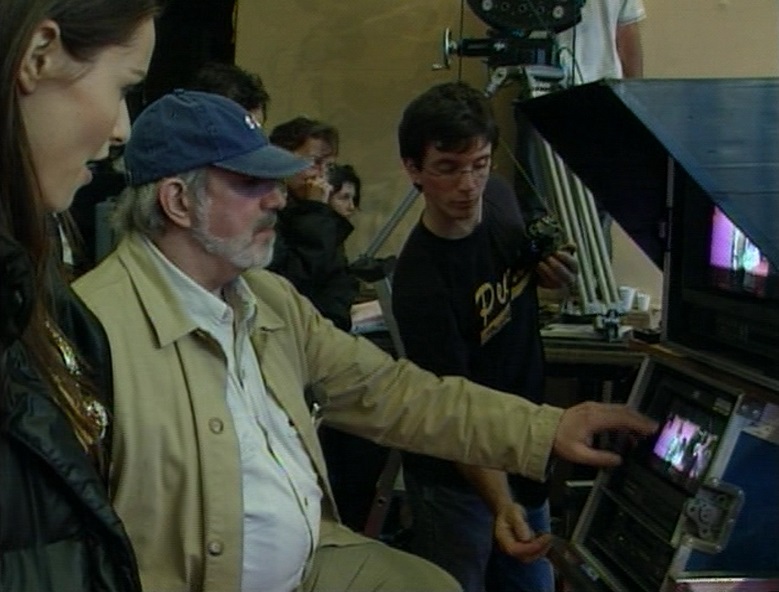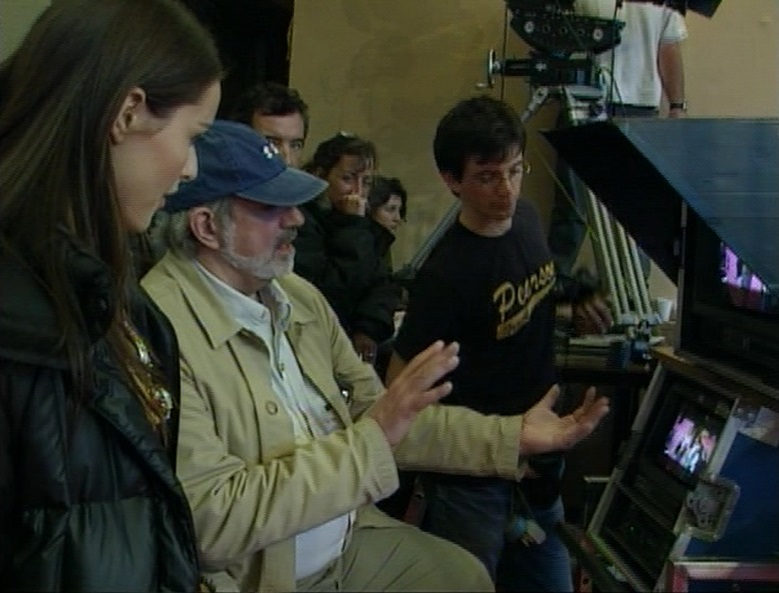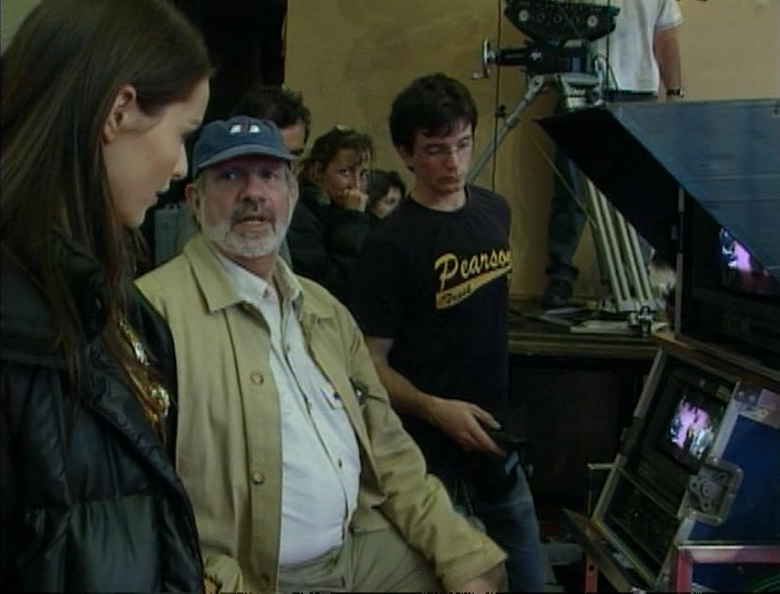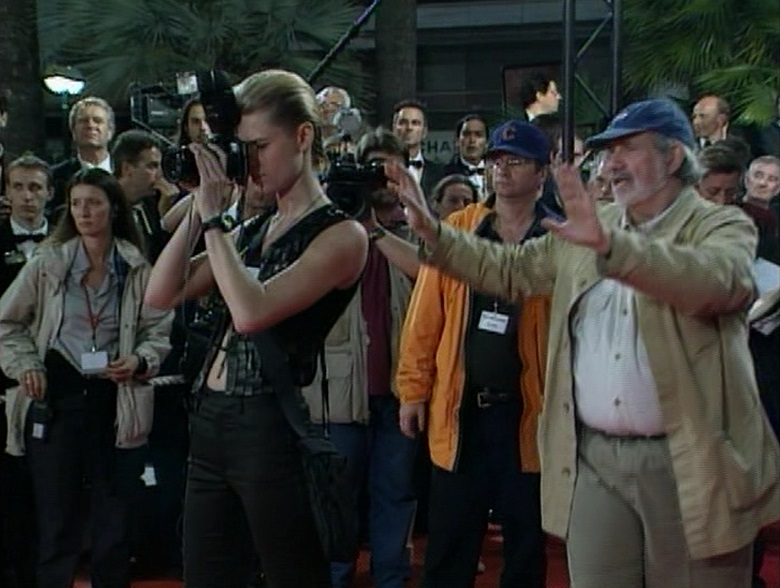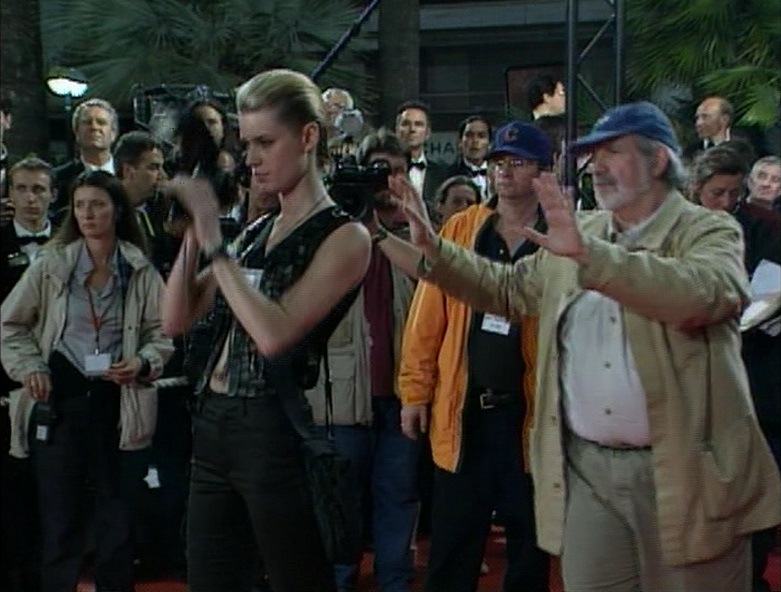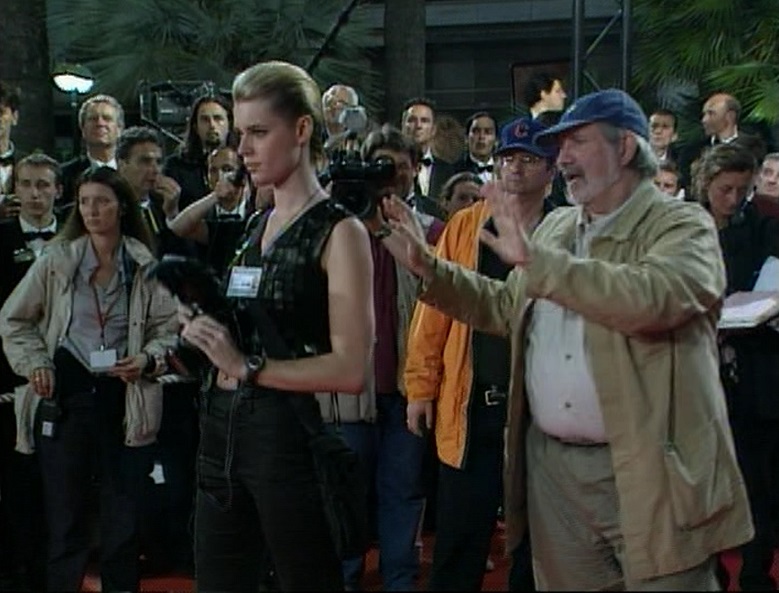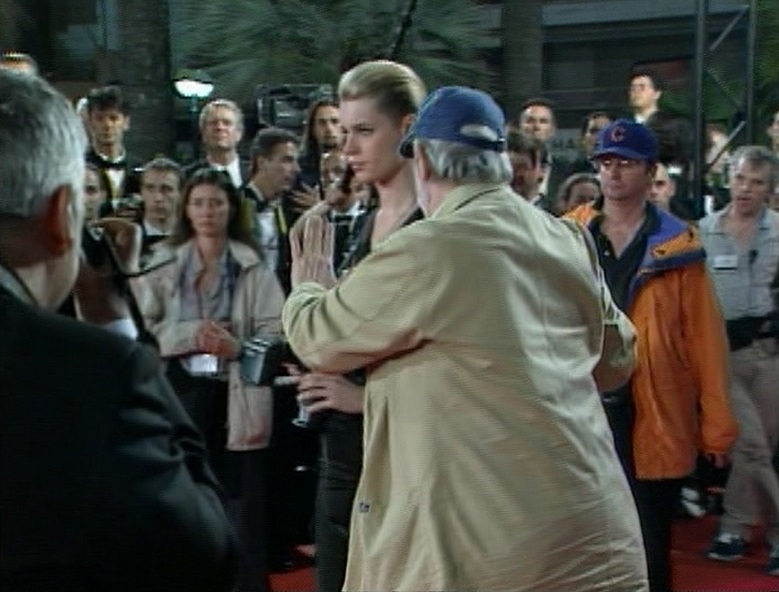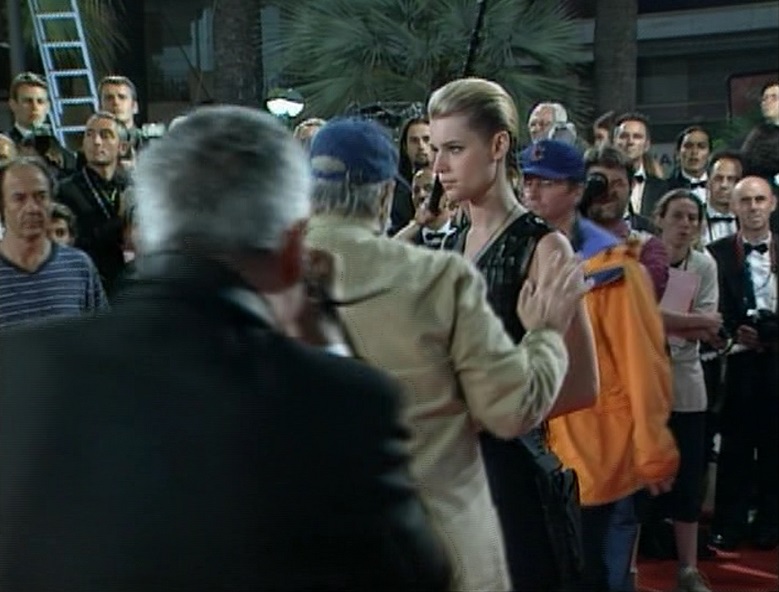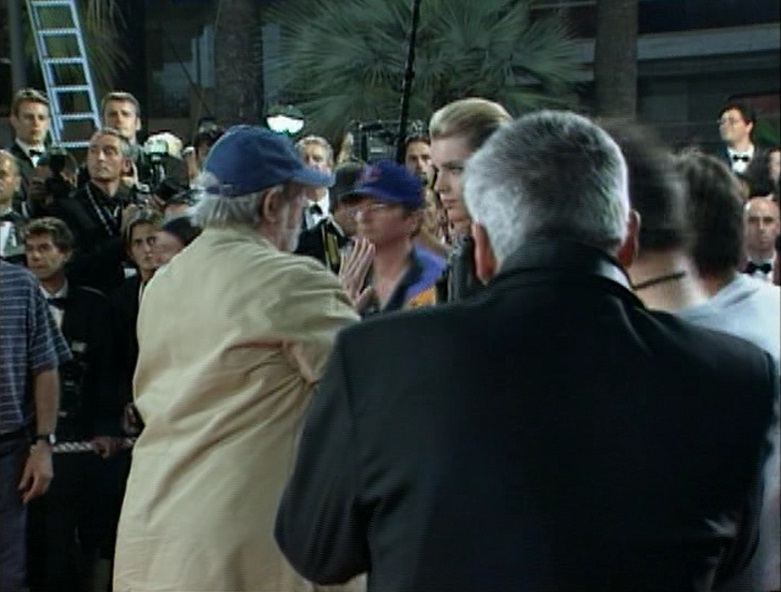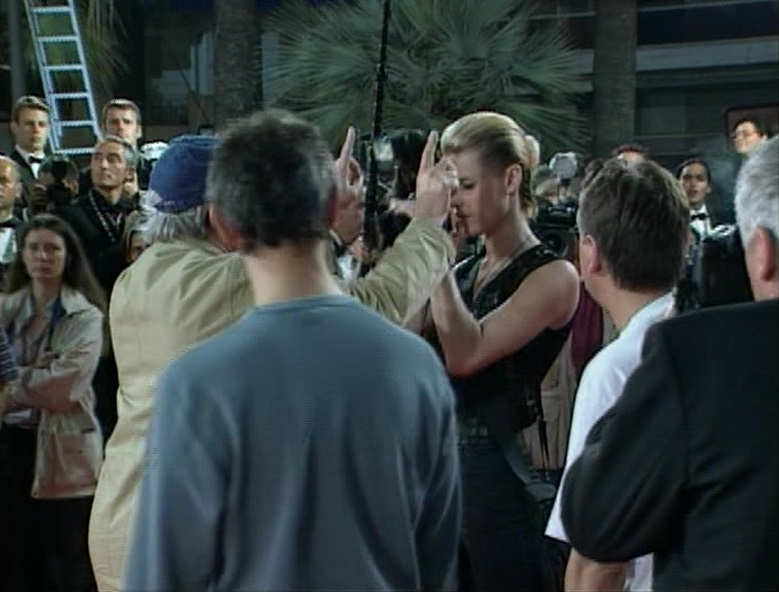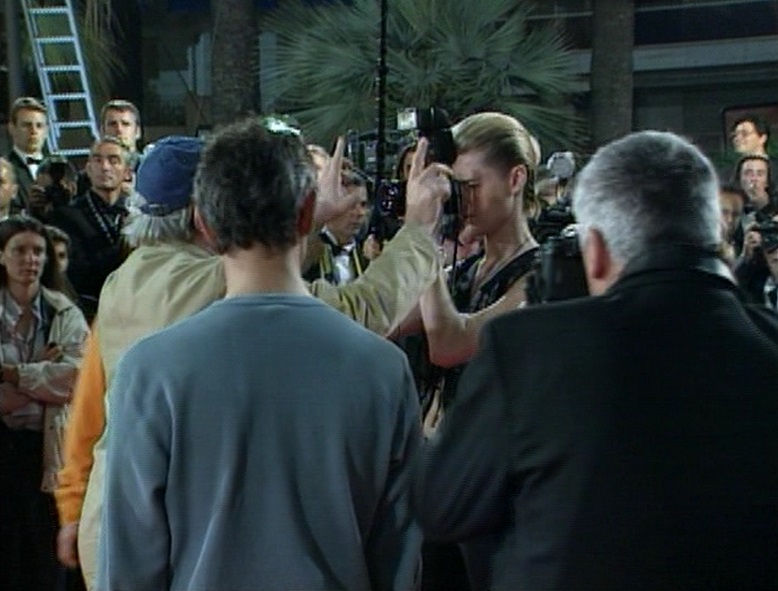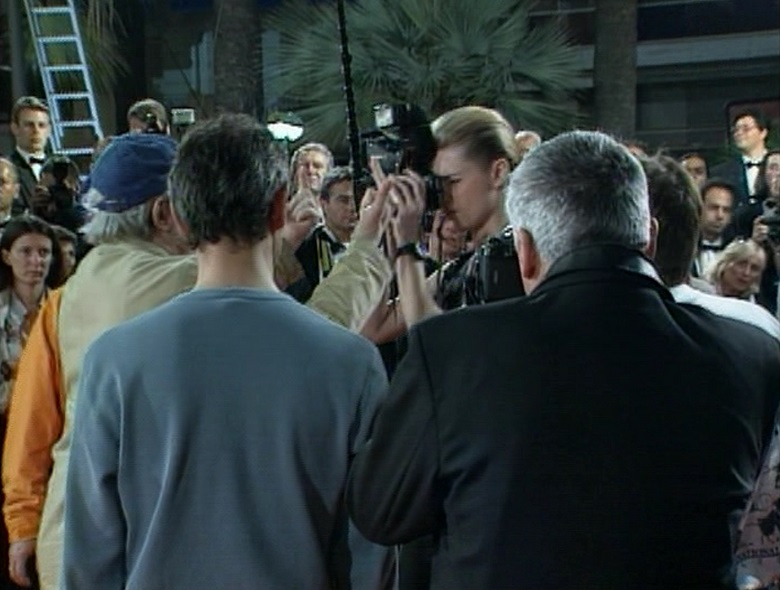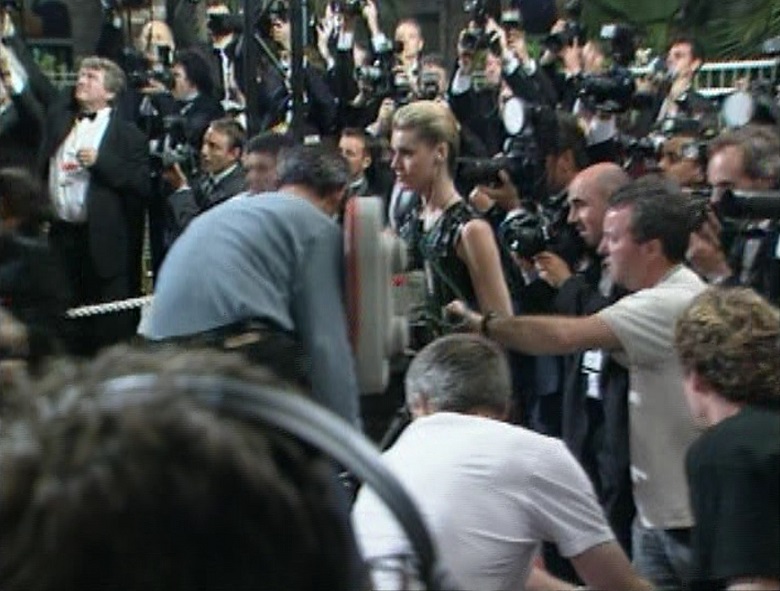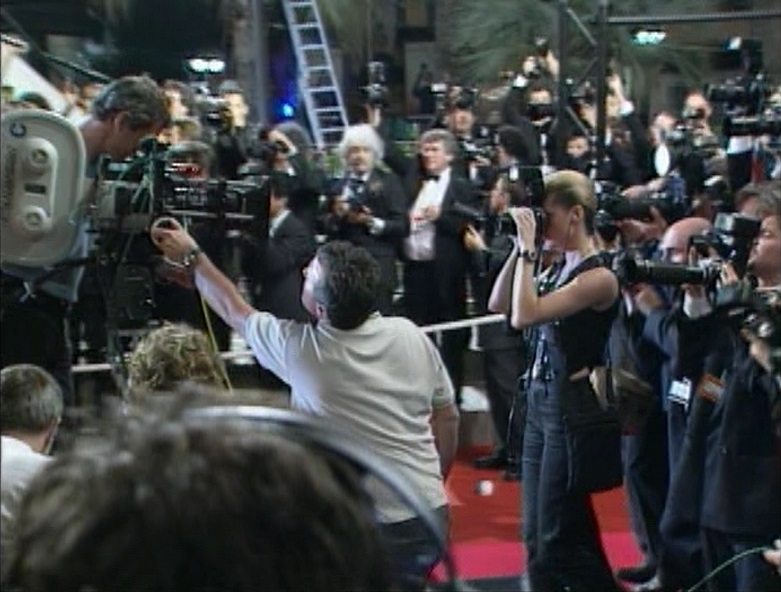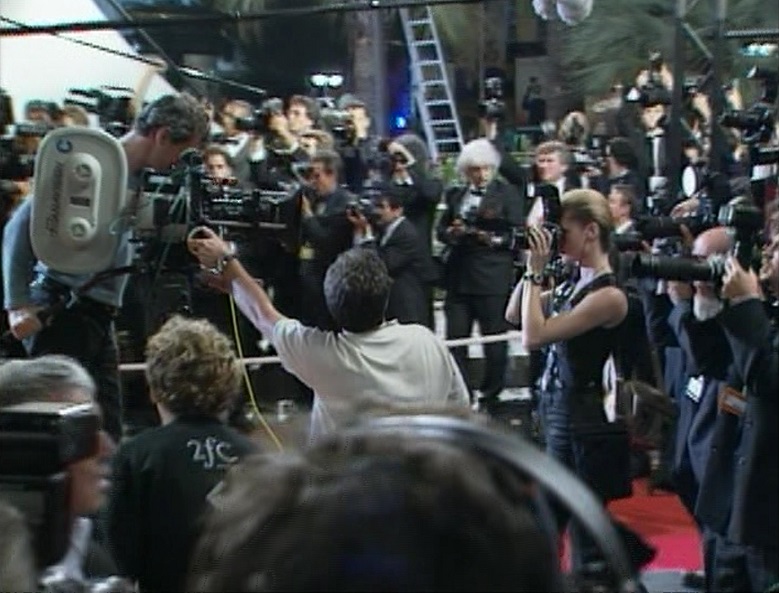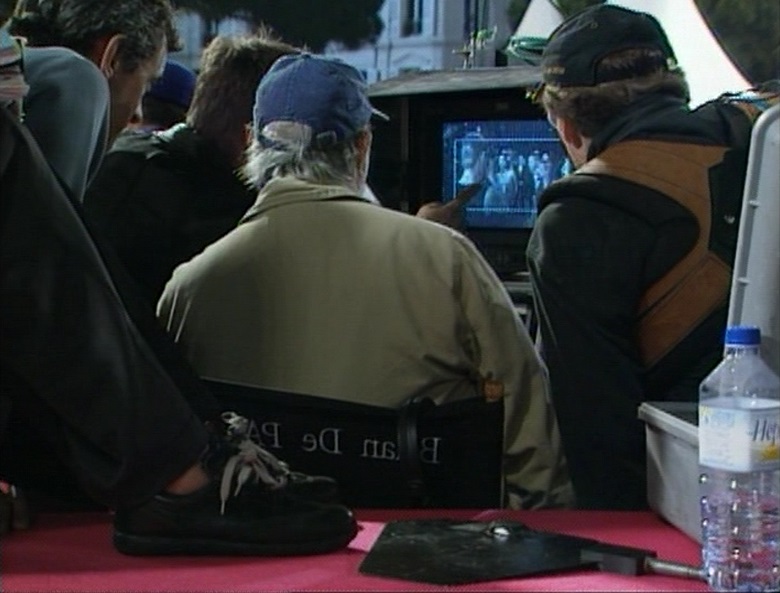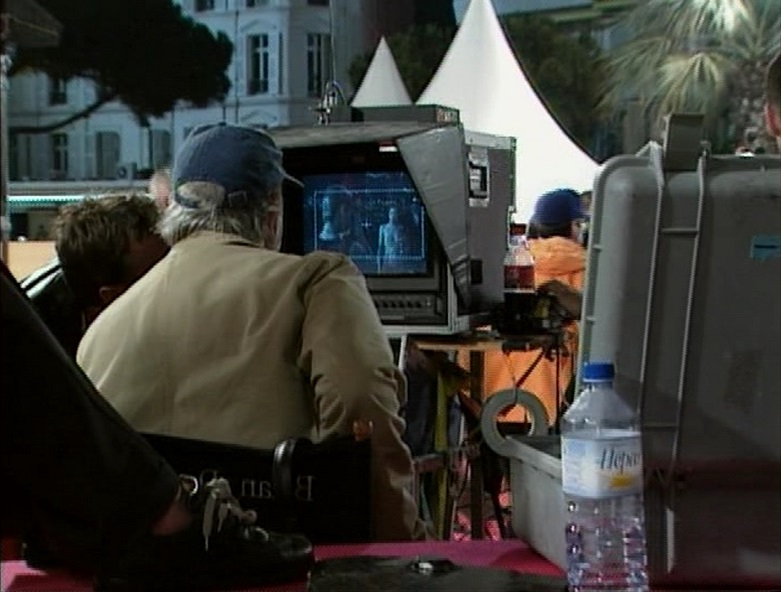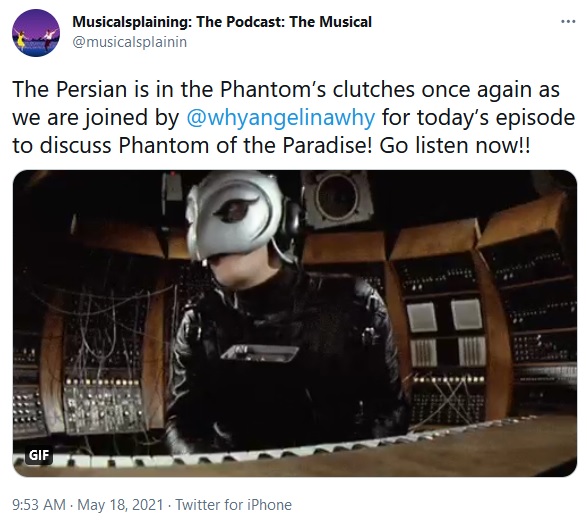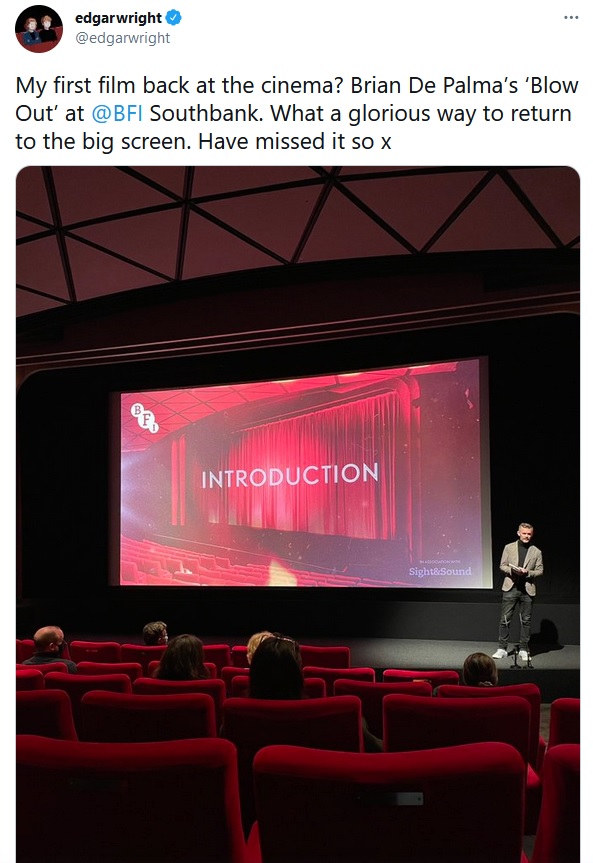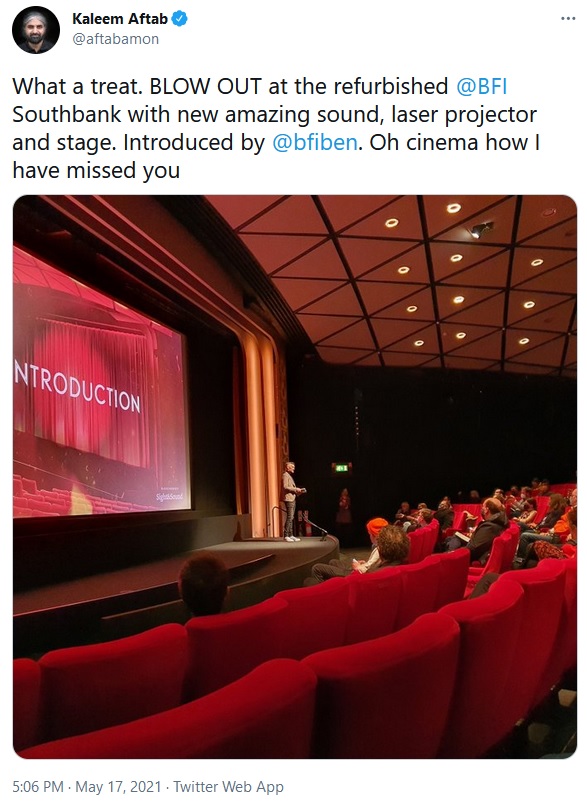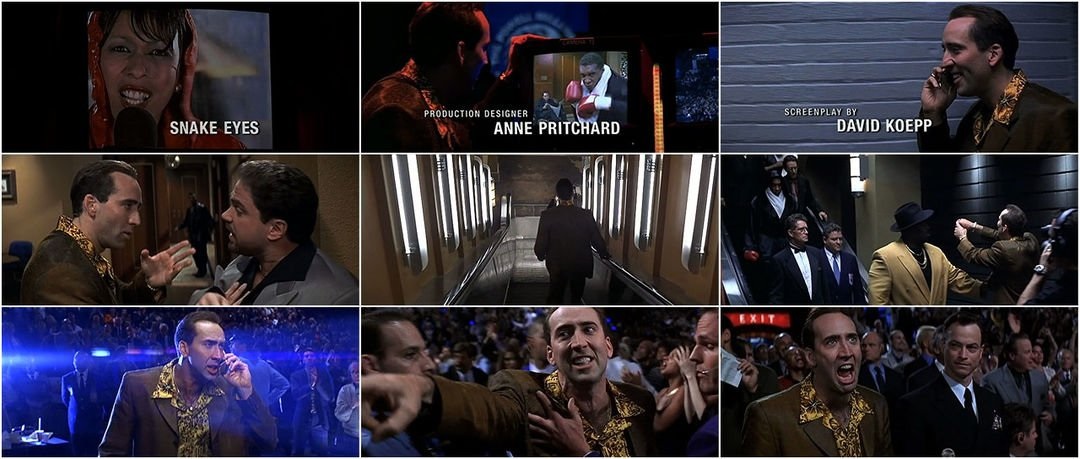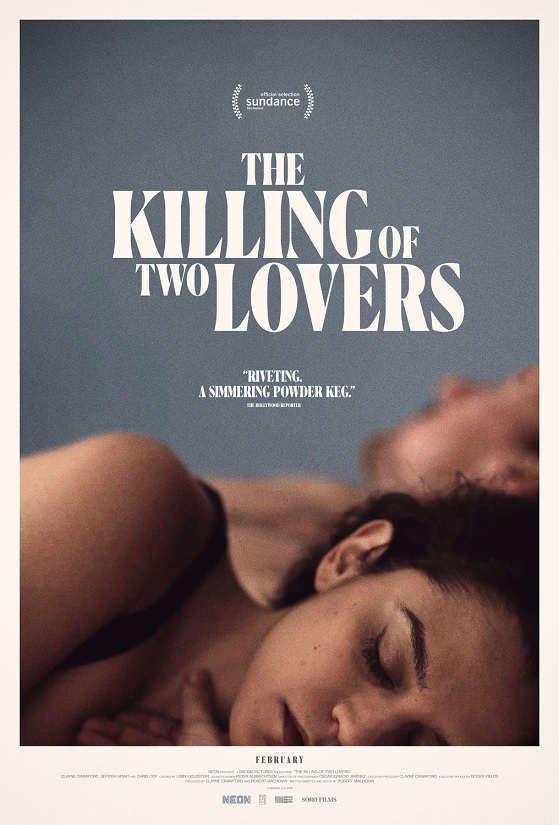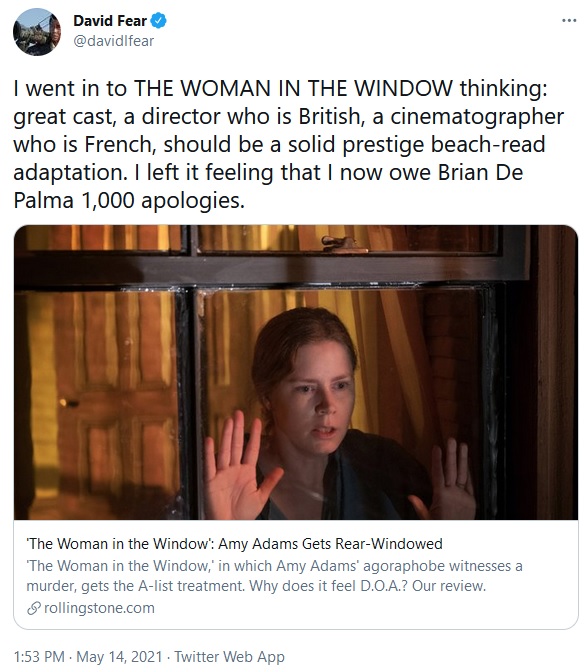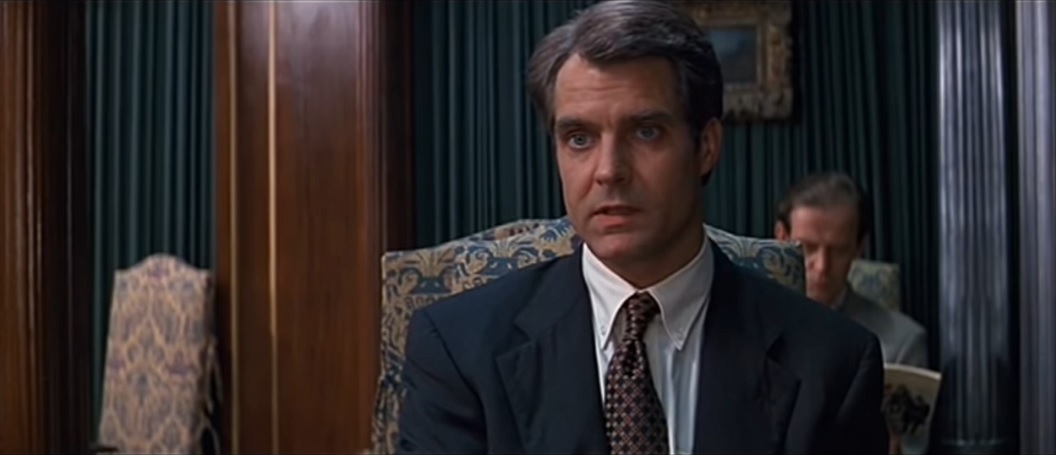ENT. WEEKLY'S DARREN FRANICH GETS IT - VOIGHT IS THE FILM'S 'MONSTROUS SOUL'
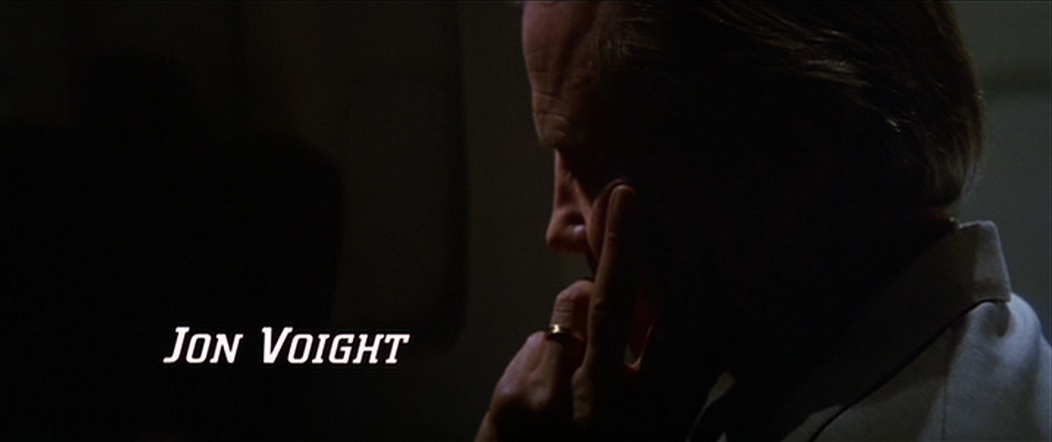
"25 years later, Mission: Impossible has a crucial subversive lesson for every franchise," reads a headline from yesterday at Entertainment Weekly. Although the article by Darren Franich steers toward discussion of franchise, the "subversive rage" he mentions is there in the film from Danny Elfman's opening crescendo of percussion over the Paramount logo, and quietly simmers as Jon Voight's Jim Phelps is asked if he would like to watch a movie, and replies, "No, I prefer the theater." The theater, indeed-- Tom Cruise's Ethan Hunt, full of his own angst after the death of most of his team, will take a deep dive into Phelps' rage by putting himself in the shoes of Phelps' secret identity, Job.
It's no wonder Ethan Hunt looks so troubled as he's offered a movie to watch on the plane in the film's final shot. His mentor had perversely turned traitor, and now Ethan knows the story inside and out. Would Ethan ever allow or find himself to be as corrupt as his mentor? As if being woken from a De Palma-style nightmare on the plane at the end (remember Jim Phelps' bloody Carrie-and-Deliverance-like hand coming toward Ethan in a dream?), Ethan's troubled look leaves the question hanging. A ghost, as Kittridge might call him, and yet obliged, like Besson's Nikita, to "consider the cinema of the Carribbean," or "Aruba, perhaps?"
Here's more from Franich:
Jon Voight was 57 when Mission: Impossible hit theaters 25 years ago, but everything about Brian De Palma's movie renders him older. Gray-haired Jim Phelps wears suspenders that are painfully '80s — and May 22, 1996, was one of the last times in history nobody wanted to look '80s. Quite a contrast with Ethan Hunt (Tom Cruise), Jim's fellow secret agent, a walking smirk whose leather jacket shines brighter than his hair gel. Everyone else in Jim's Impossible Mission Force is cool: stylish European women, brash American dudes, thirtysomethings right at that perfect midpoint between being Young and being In Charge.They just got done running an op in Kiev. Jim missed it, taking an expense-account job-cation to run recruitment out of the Drake Hotel (oooh!) in Chicago. "Guy's getting soft in his old age!" Ethan says. It's just a bit of ribbing, because Jim is his mentor. It's also a generational threat. Jim's wife, Claire (Emmanuelle Béart), is on the team, too. She's younger than Ethan, and when he makes his joke about old man Jim, Claire flashes her husband an unreadable glance. Does she feel sorry for him? Is she seeing him the way the boys do — a good man, yes, but a bit paternal? In the opening scene of Mission: Impossible, Ethan injects an unconscious Claire with a syringe and then cradles her cheek. Part of the job, of course, yet De Palma's romantic framing demands subtextual perversion. Don't these two just make more sense together? And then Jim dies in the first act: a tragedy, unless you're a human with a pulse who came to a Tom Cruise movie for Tom Cruise.
Jim Phelps was a main character on the original Mission: Impossible, played by Peter Graves across a couple iterations from 1968 through 1990. It's not clear whether Voight is literally the same character; canon barely mattered in 1996 outside the Star stuff, and Voight was a decade younger than his predecessor. But the general audience carried the memory of Graves' silver-haired monotone right into the movie. What was that memory, exactly? The other day, I went to Paramount+ to find a random Mission episode from February 1971 — almost as far from the movie as the movie is from us. In "Kitara," Jim's team goes to "the African nation of Bocamo," where "a colonial minority" practices "severe racial segregation." What this means, in dramatic terms, is Jim goes undercover with a ridiculous accent, because the bad guys speaks Villain English. Meanwhile, his crew uses a special pill on the malevolent military governor (Lawrence Dobkin) that turns his white skin black.
It's crazier than it sounds, with a plot that requires the Leonard Nimoy character to say (undercover, but still): "I am 1/16th Black." I don't bring this up to demand a cultural reckoning with a half-century-old TV episode (which was anti-apartheid in spirit if helplessly tone-deaf in execution). The thing to notice is how Graves' expression doesn't waver once. Here's Jim Phelps in an off-key racial-hysteria cartoon — walking around a corner of West Africa that looks like some producer's Beverly Glen courtyard — and he greets every incident with the same indifferent newsman grimace.
Elsewhere in the early '70s, Voight was going river-mad in Deliverance, and De Palma was putting Hitchcock under the knife with Sisters, and screenwriter Robert Towne was busily composing Chinatown. The fact that all three New Hollywood-ers wound up working on a TV adaptation about Tom Cruise's fitness regimen was end-of-cinema talk in 1996. But there's a subversive rage in the first Mission: Impossible, totally absent from the later films in the franchise. Everything goes wrong in the opening embassy mission. Nerdy hacker Jack Harmon (Emilio Estevez) gets skewered in an elevator — a heart-dagger for any Mighty Duck kids who saw Coach Bombay laughing with Cruise in the trailer. The rest of the team dies, too. It's one of the best first half-hours in any thriller. You only gradually realize how many different counter-plots were playing out in front of you. There's the embassy party, and a traitor stealing valuable information, and the IMF team stopping that traitor, and another IMF team setting up this whole operation to smoke out a mole in the agency.
At the center of this mystery maze is the mole: Jim Phelps, legendary hero of Mission: Impossible, a friend-killing backstabber who sells out the entire global security apparatus for some retirement cash. Between Jim's "death" and his surprise reappearance, the movie loses a step. Everyone remembers the hanging computer hack, which is a blast. But the screenplay is officially credited to Towne and David Koepp, plus a "story by" credit for Steven Zaillian and rumors of script doctoring by everyone in town. You feel Mission's many cooks, the sense that Cruise's star power is gluing together some missing motivation. The dynamic between Ethan and Claire doesn't land anywhere it should: not romantic, not sexual, not suspicious, really nothing. They stitch together a renegade squad with Luther (Ving Rhames) and Krieger (Jean Reno). They fly to America, to London. They prepare a final sting to flush out the real bad guy.
And then Jim finds Ethan. He peddles an alibi, blaming the team's death on Kittridge (Henry Czerny). Ethan doesn't buy it. He can see the truth. We watch Jim's shooting from another angle. The old man fires his own gun, and reaches for blood packs. The look on Voight's face is astounding: a primal scream, a smile unlike any smile Tom Cruise has ever grinned (except maybe amid Interview With the Vampire's erotic vanquishment). He is getting away with something awful. He loves it.
In this late Ethan-Jim conversation, Mission rediscovers all its layers. They're both fooling each other, and their lies ring true. Why, Ethan wonders, would Kittridge have done all this? "Why, Jim?" he asks, "Why?" Jim's response has the quality of confession:
When you think about it, Ethan, it was inevitable. No more Cold War. No more secrets you keep from everyone but yourself, operations you answer to no one but yourself. And then one day, you wake up, the President of the United States is running the country without your permission. The son of a bitch. How dare he? Then you realize it's over. You're an obsolete piece of hardware not worth upgrading. You've got a lousy marriage and 62 grand a year.
"It was inevitable," says the hero of an old Mission: Impossible who is now the monster of the new Mission: Impossible. Every franchise gets the religious treatment now, so it's hard to think of any comparable event in recent years. Imagine if Luke actually was a bad guy in the new Star Wars movies, or if a Harry Potter sequel in 10 years finds Hermione peddling Ministry of Magic secrets to some breakaway Durmstrang alumni. A cosmic perspective on the last 25 years of movie franchises might declare that movie sagas have gotten more serious. But that's mostly cosmetic. James Bond keeps saving the world, and even Evil Superman is just a prophecy. (One Terminator turned John Connor into a bad guy, a decision offset by how Arnold Schwarzenegger's robot keeps getting nicer.) There are exceptions, and cultural reckonings nudge recent franchise expansions to reconsider their heroes in a broader context. But according to original series star Martin Landau, one original plan for the first Mission movie was to kill off the entire TV show cast in the opening reel. Today there would be social media scandals, actors and fans uniting with anxious executives to ensure a proper nostalgic celebration. In 1996, Mission: Impossible could still reserve its fan service for bleak jokes. "Good morning, Mr. Phelps," Kittridge says when the jig is up. That greeting started almost every episode of the show. Here, it sounds an awful lot like Gotcha, sucker.
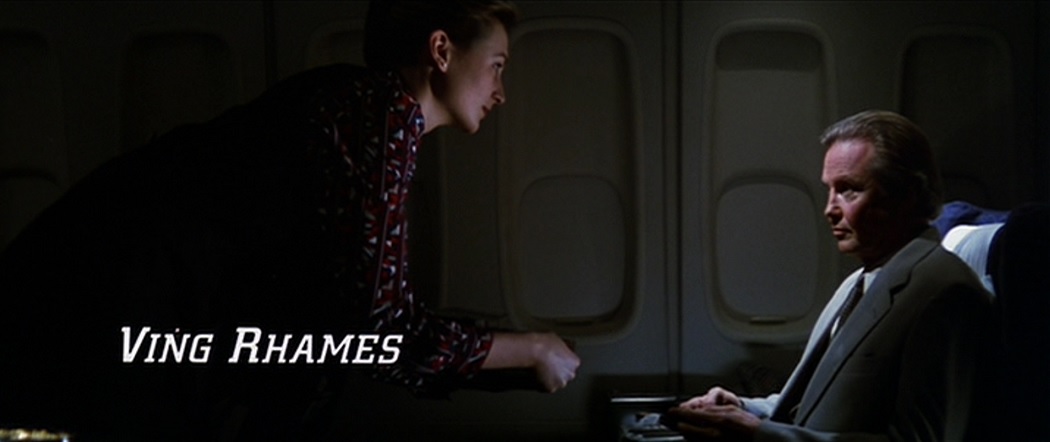
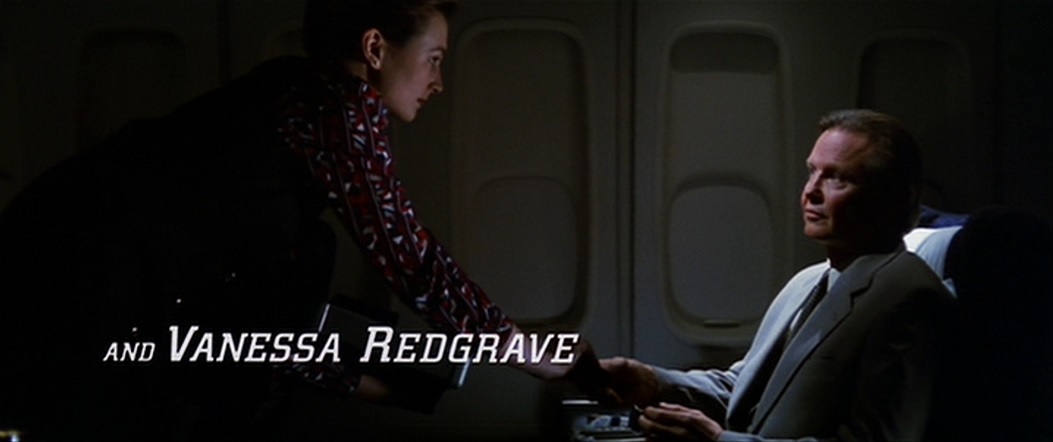
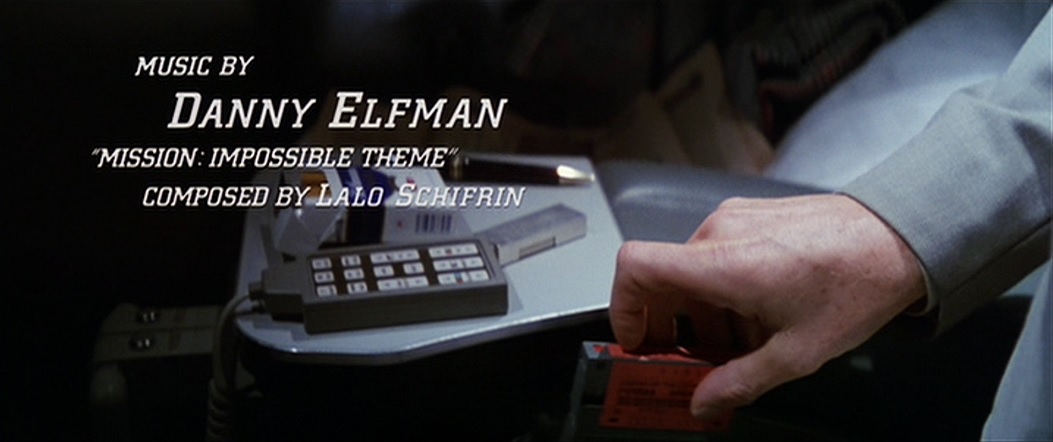
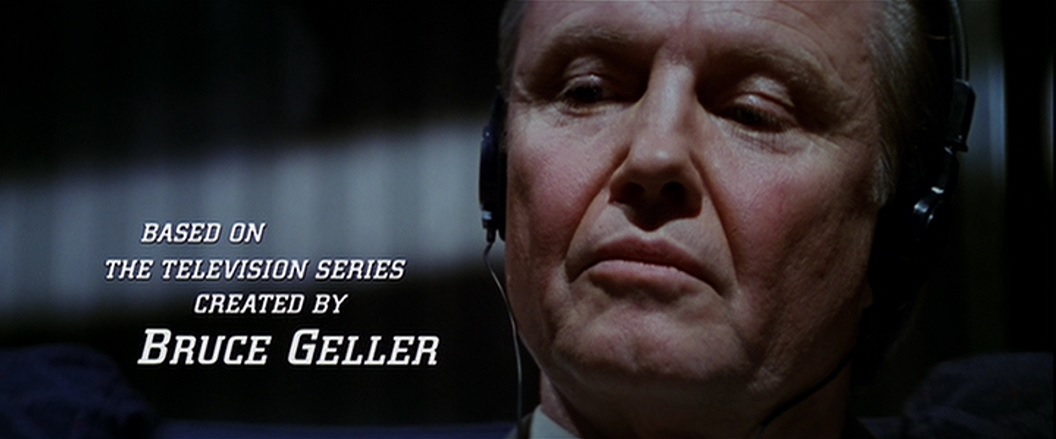
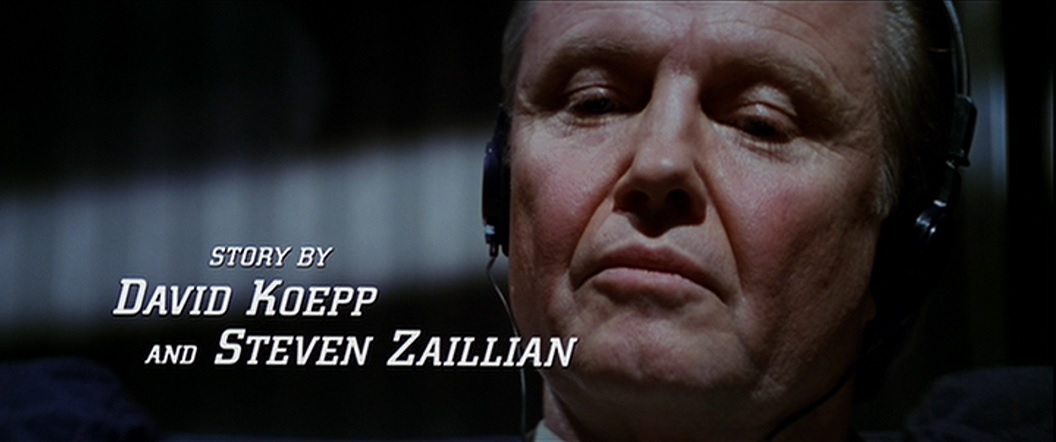
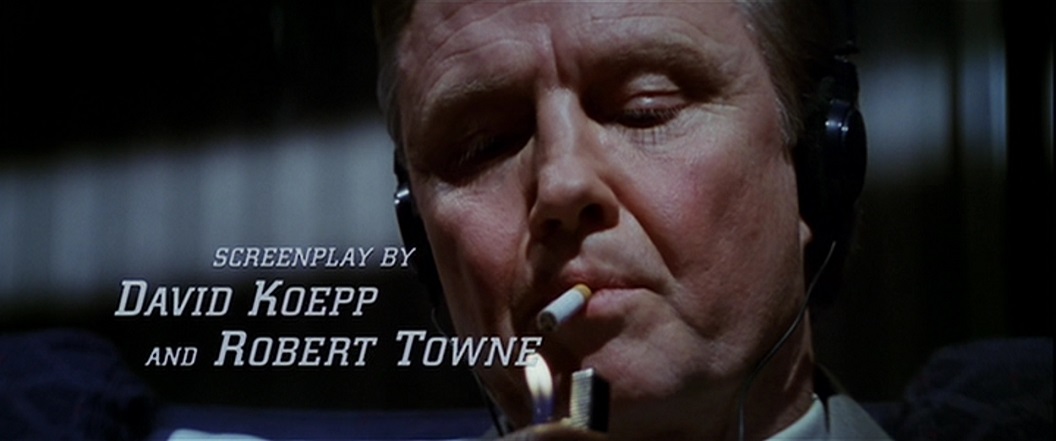
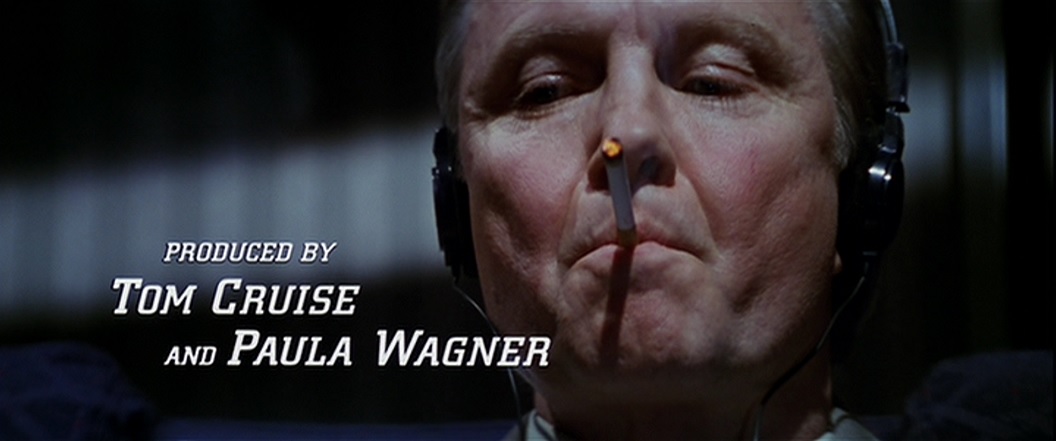
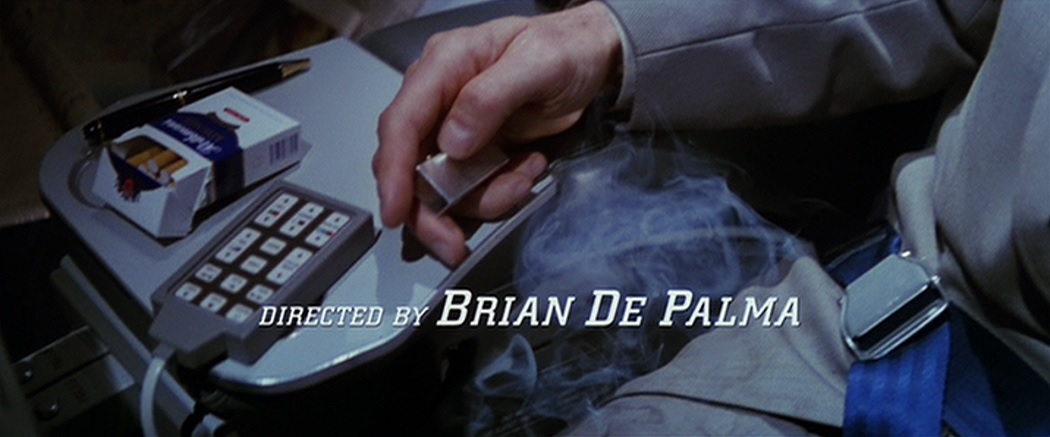
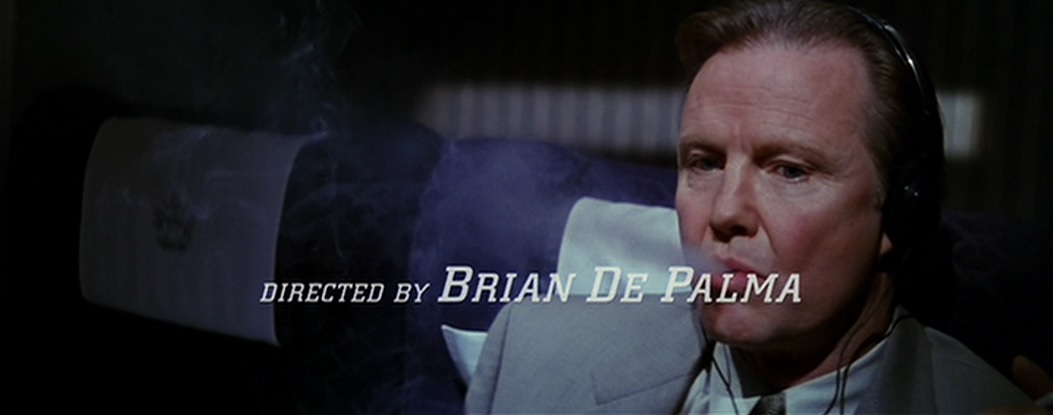
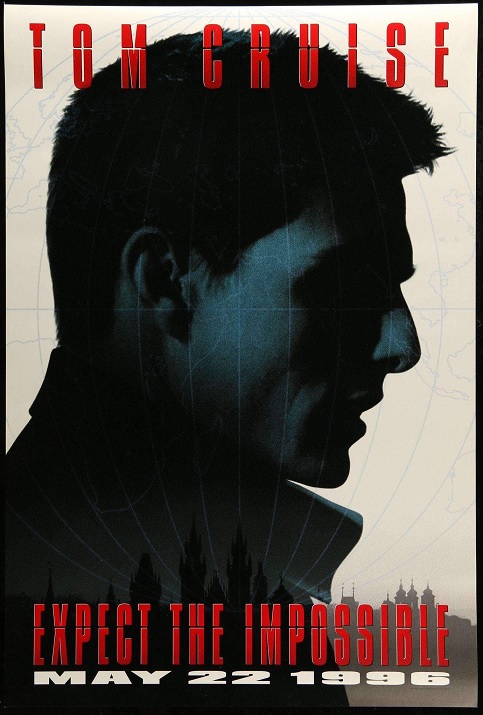
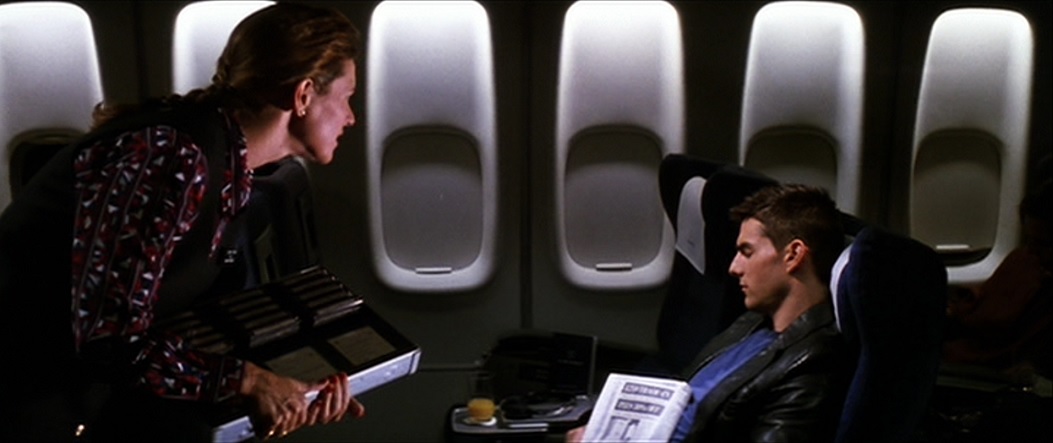
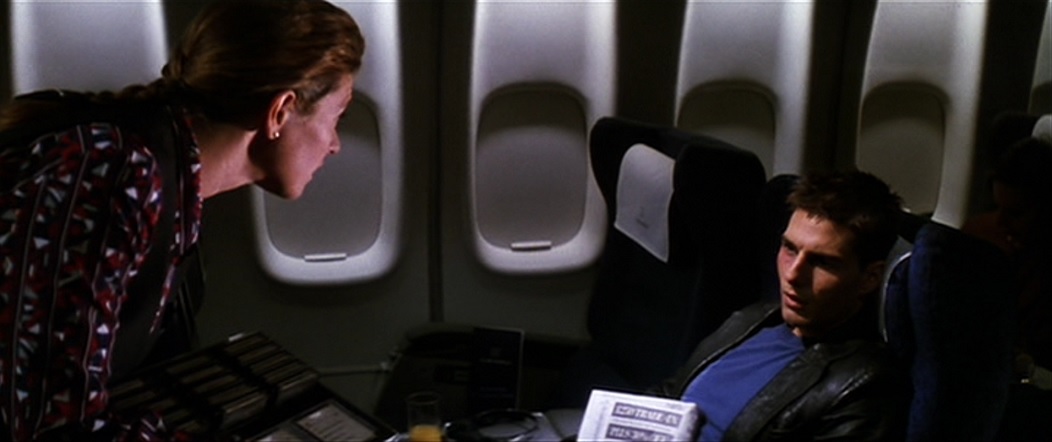
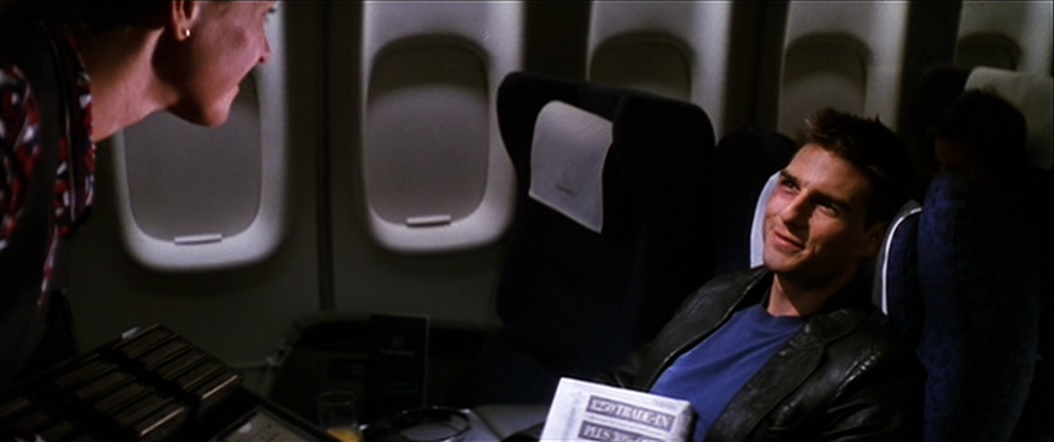
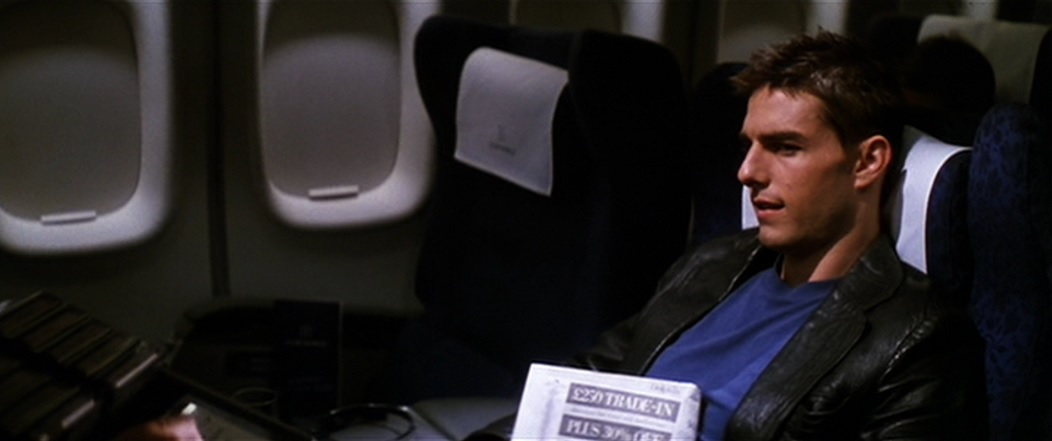
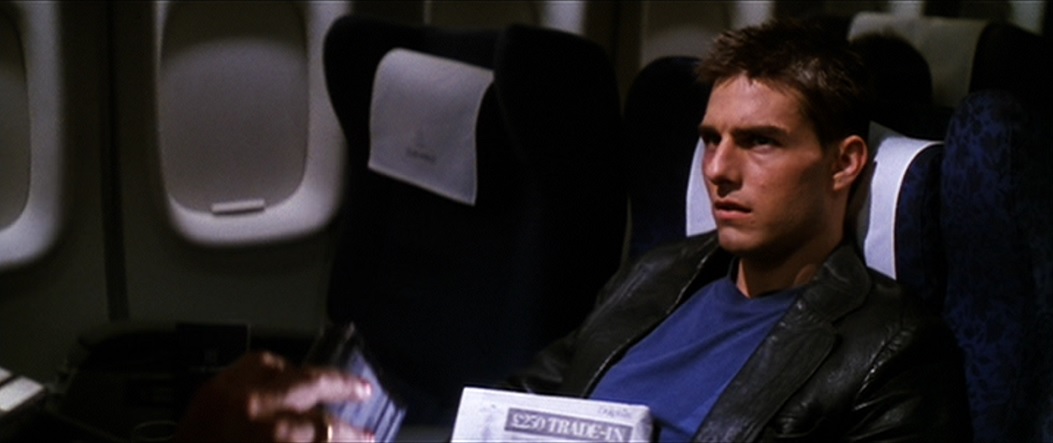
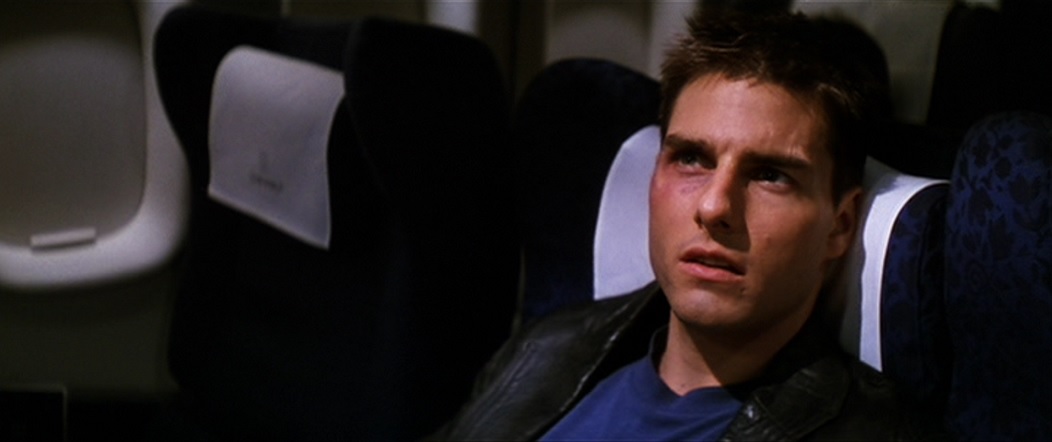
Updated: Sunday, May 23, 2021 5:56 PM CDT
Post Comment | View Comments (2) | Permalink | Share This Post




